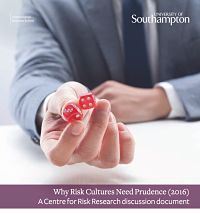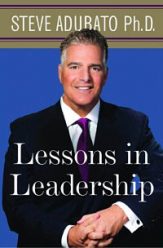Indexes - all Resources

England coach Allardyce forced out in disgrace after 1 game. (2016)
"It's a painful decision, but it's the right decision if we are to protect the integrity of The FA." Associated Press Mail Online, 28 September 2016 Image: AP Photo/Scott Heppell, file Having taken 25 years to reach the pinnacle of English soccer management, Allardyce was toppled after only 67 days by his hubris and indiscretions involving undercover journalists posing as businessmen. The English Football Associati...
Written by: Associated Press
Read more
There’s a new algorithm that will alert Wall Streeters when they start freaking out. (2016)
“…traders who expressed too little or too much emotion made relatively poor trades. Rachel Butt (reporting the work of professor Brian Uzzi, Kellogg School of Management and colleagues Bin Liu of Google, and Ramesh Govindan, Northwestern University, Illinois.) Business Insider UK, 22 September 2016
This article relates to items we’ve uploaded (notably by Dr John Coates) on the way hormones affect trad...
Written by: Uzzi, Brian; Liu, Bin & Govindam, Ramesh.
Read moreEarly lessons from Wells Fargo: Three ways to prevent getting set up for ethical failure. (2016)
"...Corporate scandals (and) ethical failures are often organizational at their outset." Ron Carucci forbes.com, 13 Sept 2016 Photo by Joe Raedle/Getty Images "While most assume corporate scandals are the result of devious, greedy people prone to do “bad” things, the reality is that ethical failures are often organizational at their outset. They frequently begin with otherwise good leaders being put into ...
Written by: Carucci, Ron.
Read moreDon’t let power corrupt you. (2016)
"Practical mindfulness exercises for resisting ‘the power paradox’ aka Hubris Syndrome." Prof. Dacher Keltner, University of California, Berkeley, faculty director of the Greater Good Science Center. Harvard Business Review October 2016. "…people usually gain power through traits and actions that advance the interests of others, such as empathy, collaboration, openness, fairness, and sharing. "When they start to ...
Written by: Keltner, Dacher,
Read moreWhy Risk cultures need prudence. A Centre for Risk Research discussion document.
“… this document will contend that prudence has great potential to serve as the most fundamental concept within any organisation’s risk culture. Dr Alasdair Marshall, also Prof Johnnie Johnson, Prof Ming-Chien Sung, Dr Melanie Ashleigh, Dr Denise Baden, Dr Mario Brito and Dr Ian Dawson; all of Southampton Business School. A discussion document published by the University of Southampton’s Centre for Risk Research (CRR).
Written by: Marshall, Alasdair.
Read moreLessons in leadership. (2016)
“…great leaders need to understand that the questions they ask or don’t ask greatly impact on the conversations they have with others around them… Steve Adubato, PhD. Writer, former visiting professor at New York University, Rutgers University, Seton Hall University and the New Jersey Institute of Technology. Rutgers University Press. From the publisher’s website: Adubato teaches readers to be “sel...
Written by: Adubato, S.
Read moreLeadership: All you need to know, 2nd edition. (2016)
"...a practical guide on how to increase the effectiveness of leadership in any organization.” David Pendleton, Associate Fellow Saïd Business School and of Green Templeton College, Oxford; & Adrian Furnham, University College London. Springer. From the publisher’s preview: “.. Pendleton and Furnham present an innovative model for leadership success in a turbulent world. “When times are hard, l...
Written by: Pendleton, D. & Furnham, A.
Read moreThe dangers of power. (2016)
"How you can gain more power, and why you should be leery." Shana Lynch (based on the writing of Prof Brian Lowery, Standford University), Stanford Business Insights, 27 July 2016 “You have to be careful with power,” says Stanford Graduate School of Business professor Brian Lowery. “Think of it as fire. It’s useful, but it’s also dangerous.” As part of a Stanford Executive Program course, Lowery describes d...
Written by: Lynch, Shana & Lowery, Brian.
Read moreBattling hubris before crisis strikes: Suggestions for researchers and practitioners. (2016)
“… there is a strong case for changes to be considered to governance, regulation and certain aspects of organisation design and reward.” Matt Nixon - Associate, Ashridge Business School and Principal, Disraeli Group Paper presented at Ashridge Developing Leadership Capacity conference, July 2016 “Only through better board scrutiny, new approaches to leadership selection and development, as well as radical changes to reward...
Written by: Daedalus admin
Read moreAgainst the Führerprinzip: for collective leadership. (2016)
“Highlights the ineffectiveness and dangerousness of powerful individual leaders.” Prof. Archie Brown, University of Oxford. A chapter from the special edition of Daedalus (the Journal of the American Academy of Arts and Sciences) ‘On political leadership’, published summer 2016. "The Führerprinzip (‘leader principle’) has not been confined to Nazi Germany. The cult of the strong leader thrives in ma...
Written by: Brown, Archie.
Read more












